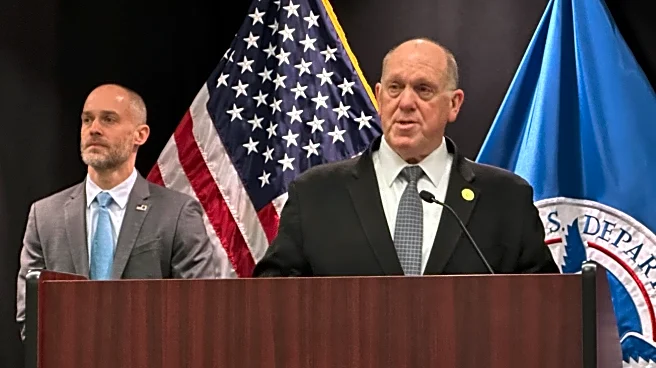What is the story about?
What's Happening?
Former Finance Secretary Subhash Garg has criticized President Trump's assertions that India is profiting significantly from discounted Russian oil. Garg described these claims as 'political theatre' rather than economic reality. According to Garg, a CLSA report has debunked the narrative, indicating that India's savings from Russian crude are approximately $2.5 billion annually, not the $25 billion suggested by Trump. Garg emphasized that India is purchasing Russian oil within the global price-cap framework, without violating international agreements. He warned that reducing crude purchases would be counterproductive for India, as any reduction in costs is beneficial. Garg also commented on the strained trade relations between the U.S. and India, noting that India has effectively walked away from trade talks due to high tariffs imposed by Trump. He urged India to reconsider its rigid negotiating positions, particularly in agriculture and consumer goods.
Why It's Important?
The criticism from Subhash Garg highlights the ongoing tensions in U.S.-India trade relations, exacerbated by President Trump's tariff policies. These tariffs have led India to step back from trade negotiations, potentially impacting bilateral trade and economic cooperation. Garg's remarks underscore the importance of maintaining a balanced approach to international trade, especially in sectors like agriculture and consumer goods, where flexibility could benefit both nations. The situation also reflects broader geopolitical dynamics, as India navigates its relationships with major powers like the U.S., Russia, and China. The outcome of these trade discussions could have significant implications for global trade patterns and economic stability.
What's Next?
India's stance on U.S. tariffs and its approach to trade negotiations may evolve as geopolitical pressures continue to mount. Prime Minister Modi's upcoming meeting with Chinese President Xi Jinping could influence India's strategy regarding foreign investments and trade policies. Additionally, the U.S. may need to reassess its tariff strategy to foster better trade relations with India. The potential for future negotiations remains, as Garg suggests that India should not completely close the door on trade talks, hoping for a resolution that benefits both countries.
Beyond the Headlines
The broader implications of this development include potential shifts in India's foreign policy and trade strategies. As India reassesses its approach to Chinese investments, it may seek to balance its economic dependencies and geopolitical alliances. The criticism of boycott calls against U.S. goods highlights the interconnectedness of global economies and the challenges of implementing such measures. This situation underscores the complexity of international trade relations and the need for strategic diplomacy.

















